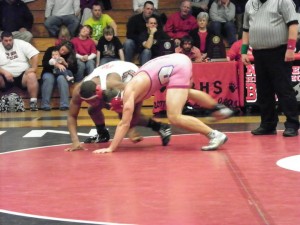Light weight wrestling
Light weight wrestling includes wrestlers from the weight of 103 to the 140 range. And while these wrestlers may be smaller than the rest, the talent and skills needed to survive this class of wrestling should not be underestimated. It is grave faux pas to assume that because an individual is lighter in weight that their ability to dominate another individual on the mat is somehow lessened. If fact what these athletes lack in size and muscle, they make up with speed, agility and flexibility. Many of these weight classes require individuals exercising the discipline to bring their weights to a desired class. The combination of skill and discipline creates a breed of athlete worthy of admiration.
The pace at which a light weight wrestle moves is much faster than that of their counterparts at the middle and heavy weights. Each move is quick and must be exerted with bursts of power, continuously. Wrestling like this wears out heavier individuals but the training of an elite light weight wrestler prepares them for these high speed battles. Light weight wrestlers are expected to be in the front of the pack when running sprints and when practicing against their heavier teammates their speed is usually the weapon of choice to counteract the strength handicap.
Weight cutting is a big part of elite wrestling and almost every lightweight wrestler must make that sacrifice in order to gain a strength advantage in their weight class. Adding this factor of discipline to their arsenal these wrestlers often become high speed weapons of aggression hitting moves at fast paces and often getting involved in scrambles.
Wrestling at these weights also means a higher probability to see certain moves often deemed as “slick” or quick light weight moves and less likely to see huge throws and muscle moves. While all weights have a fair amount of the standard single leg, double leg and high crotch takedown, moves such as the low single, ankle pick and duck unders often prevail. Primarily because these moves rely less on strength and more so on the speed and technique of an individual. Just as in any other weight range, wrestling at the lower weight range involve a high level of skill and determination but it’s the application of speed, agility, flexibility and technique that make this group of athletes unique.
-Kekura Musa
Resources for Coaches and Lower Weight Wrestlers:
- Contact a Trainer
- Books, videos, and equipment:
- Websites and training camps for heavy weight wrestling:
- Ken Chertow Wrestling Camps
- MatFish Wrestling for inexpensive wrestling gear
- Iowa State Wrestling Camps
- Ga Elite Wrestling Camps
- Tournament PA youth Wrestling listings(USA)




